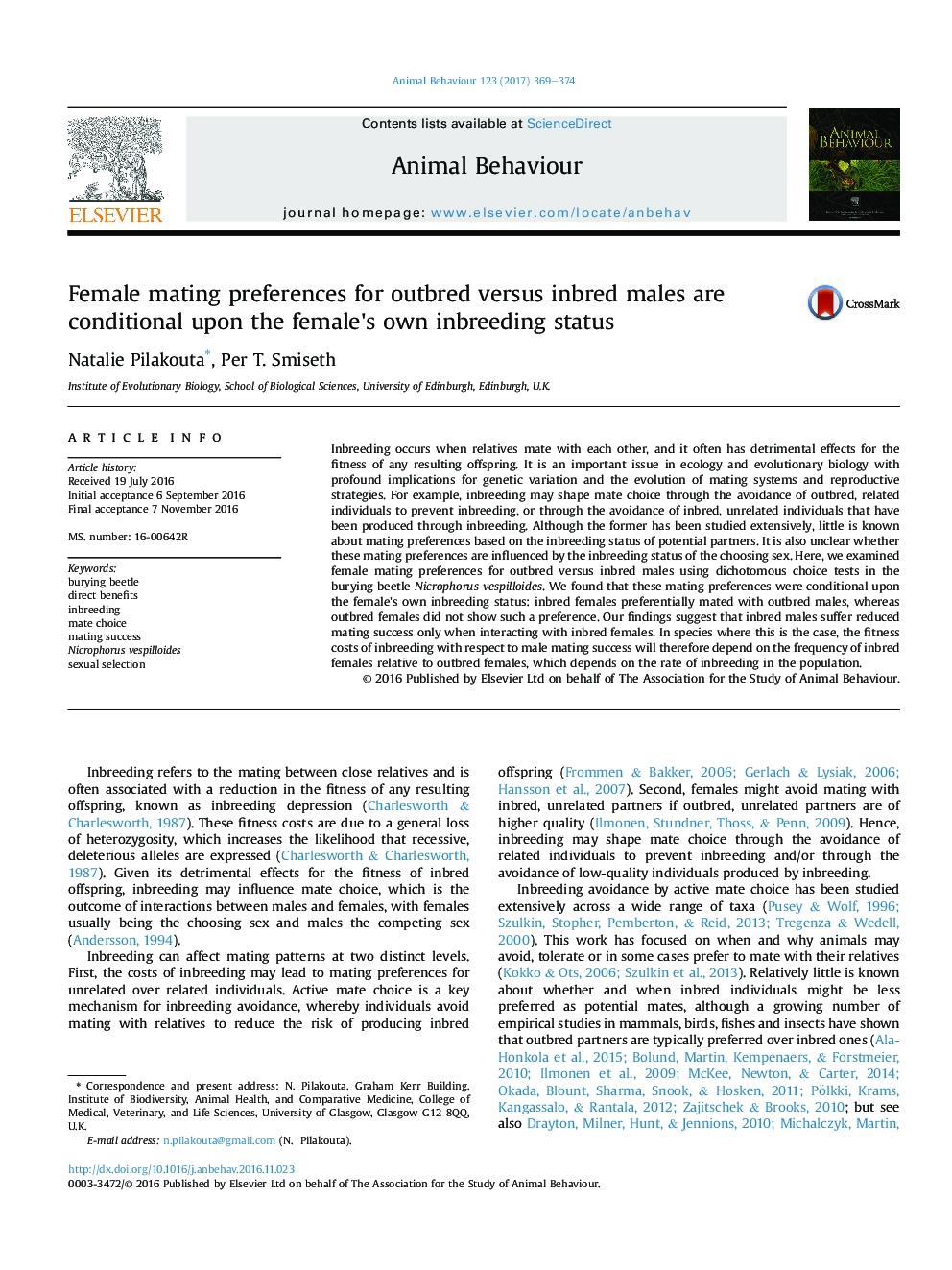| Article ID | Journal | Published Year | Pages | File Type |
|---|---|---|---|---|
| 5538601 | Animal Behaviour | 2017 | 6 Pages |
Abstract
Inbreeding occurs when relatives mate with each other, and it often has detrimental effects for the fitness of any resulting offspring. It is an important issue in ecology and evolutionary biology with profound implications for genetic variation and the evolution of mating systems and reproductive strategies. For example, inbreeding may shape mate choice through the avoidance of outbred, related individuals to prevent inbreeding, or through the avoidance of inbred, unrelated individuals that have been produced through inbreeding. Although the former has been studied extensively, little is known about mating preferences based on the inbreeding status of potential partners. It is also unclear whether these mating preferences are influenced by the inbreeding status of the choosing sex. Here, we examined female mating preferences for outbred versus inbred males using dichotomous choice tests in the burying beetle Nicrophorus vespilloides. We found that these mating preferences were conditional upon the female's own inbreeding status: inbred females preferentially mated with outbred males, whereas outbred females did not show such a preference. Our findings suggest that inbred males suffer reduced mating success only when interacting with inbred females. In species where this is the case, the fitness costs of inbreeding with respect to male mating success will therefore depend on the frequency of inbred females relative to outbred females, which depends on the rate of inbreeding in the population.
Keywords
Related Topics
Life Sciences
Agricultural and Biological Sciences
Animal Science and Zoology
Authors
Natalie Pilakouta, Per T. Smiseth,
